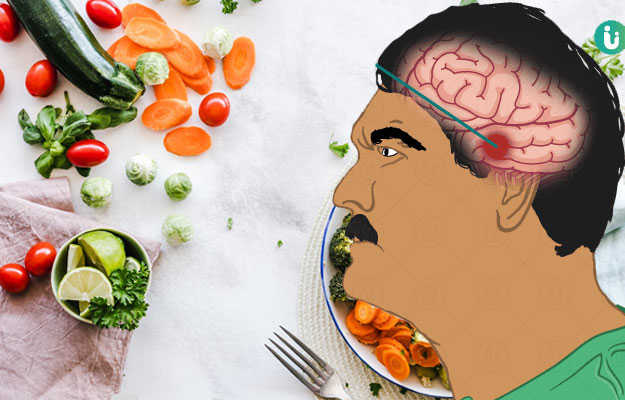There are many symptoms of this disease. Through the following dietary changes, we can control them to an extent.
High fiber meal to treat constipation: Many patients with Parkinson’s disease experience constipation due to a slowdown of the digestive system. You can manage constipation with a diet that is rich in fiber by adding fresh fruits and vegetables, whole grains, legumes, etc. in your diet. Drinking plenty of fluids and exercising can also help you avoid constipation.
(Read more: Fiber rich foods)
Watch fluid intake to avoid dehydration: Medications that treat Parkinson’s disease can make you dehydrated. Dehydration can, in turn, make you feel tired and, over time, lead to confusion, balance issues, weakness and kidney problems. Make sure to drink plenty of water and other fluids throughout the day. You can choose from milk, buttermilk, fruit juices and lemon water.
Eat right if you’re experiencing loss of taste: Loss of taste is one of the common symptoms. It can lead to weight loss, depression and malnutrition. To treat this problem, try to have more of your favourite and well-flavoured food. Add spices to your meals and put the emphasis on aroma and texture. Try to avoid bland foods, plain meats and unsalted foods when experiencing this symptom.
If you are tired of dieting and exercising and are not able to lose weight, then use myUpchar Ayurveda Medarodh Fat Burner Capsule, it has no side effects, order it today and avail the benefits.
Diet for diarrhea in Parkinson’s disease: Diarrhea is very common during Parkinson’s disease. To deal with this, eat smaller and more frequent meals to balance your energy level. Fluid replacement is very important to prevent dehydration; try and drink water or rehydration drinks after every loose motion. Eat bananas, potatoes, fish and meat and drink lemon water and tomato juice to replenish salt (sodium) and potassium in the body.
Eating right to treat nausea: Nausea can be a side effect of medication in this disease. Talk to your neurologist if you are experiencing this symptom. Try to have light, small and frequent meals. Ginger or peppermint tea may help resolve this symptom. Try to eat simple foods such as rice, scrambled eggs, toast, bananas, mashed potatoes, custard, etc. Allow plenty of fresh air in the house and try to disperse the cooking odours. Avoid having dairy products, cream soups, fatty/fried foods, sweet desserts and avoid lying down immediately after eating as it can be a trigger for nausea.
Diet to help with swallowing problems: Eating small and frequent meals can be helpful if you have difficulty swallowing. Try to have a pureed diet such as khichadi, porridge, lentil soup, milkshake or smoothie. If you are not able to eat and swallow, you can discuss dietary supplements with your dietitian. Drink 6-8 glasses of fluids each day.
Avoid high protein food with your medication: The drug most commonly used to treat Parkinson’s disease, carbidopa-levodopa, is absorbed in your small intestine. That absorption can be disrupted if you take your medication shortly after eating a high-protein meal since it involves the same process. To help maximize the medication’s effects, eat high-protein foods at other times of the day. If you take your medicine in the morning, have porridge instead of high-protein eggs for breakfast, and save your protein intake for later in the day.












